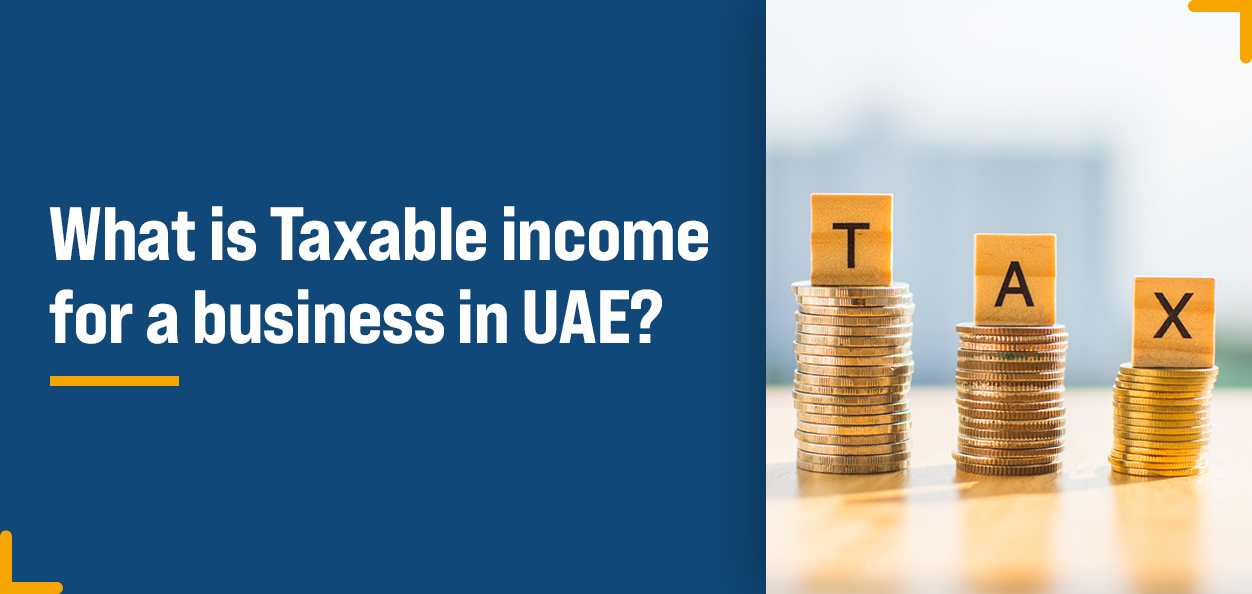
Corporate Tax (CT) in UAE has been implemented on businesses starting from June 2023. It will be levied at a rate of 9% on the profits of the businesses from the accounting period starting on or after June 01, 2023.
CT is levied on the taxable earnings of an entity during a specific tax period. Typically, this tax is assessed annually, and the responsibility for calculating and paying Corporate Tax rests with the entity itself through a self-assessment procedure. This involves submitting a Corporate Tax Return to the Federal Tax Authority.
The initial step in calculating taxable income is based on the entity’s accounting income, which refers to their net profit or loss before taxes, as indicated in their financial statements. To arrive at the final taxable income for the relevant tax period, certain adjustments must be made. These adjustments might include accounting for income that is exempt from Corporate Tax and accounting for expenses that are either entirely or partially non-deductible for Corporate Tax purposes.
The rate of CT is 9% of the net profit as per self-declaration of the business in any tax return. CT of 9% shall be payable on over and above the minimum threshold of AED 375,000 taxable income.
For instance, if the taxable income of a tax period is AED 425,000 the corporate tax will be AED 4,500 (425000-375000 x 9%).
Businesses will be classified as Taxable, Exempt, or Qualifying Free Zone Persons under the existing regime.
Either a resident or non-resident.
Companies and legal entities, established or recognized in accordance with the UAE’s laws, will automatically be classified as Resident Persons for Corporate Tax purposes. This applies to legal entities formed under mainland regulations, Free Zone regulations, and those established through specific statutory provisions (e.g., special decrees).
Foreign companies and other legal entities may also qualify as Resident Persons for Corporate Tax purposes if their effective management and control take place within the UAE. This determination hinges on the unique circumstances of the entity and its operations, particularly focusing on where substantial key management and commercial decisions are made.
Individuals will be subject to Corporate Tax as “Resident Persons” for income originating from both domestic and foreign sources, but only in cases where such income arises from a Business or Business Activity conducted by the individual within the UAE. Other income earned by individuals falls outside the scope of Corporate Tax.
Non-Resident Persons refer to legal entities that do not qualify as Resident Persons and fall into one of the following categories:
For Non-Resident Persons, Corporate Tax will be applicable to the Taxable Income associated with their Permanent Establishment.
Exemption made automatically, by the cabinet, or upon application
Exempt if requested and granted by the Federal Tax Authority
A Free Zone Person who is a Qualifying Free Zone Person can benefit from a preferential Corporate Tax rate of 0% on their “Qualifying Income” only. To qualify, the Free Zone Person must:
We at AccouConsult, a prominent tax consultant in the UAE, offer invaluable assistance to entities navigating the complexities of Corporate Tax. With their deep expertise and extensive knowledge of UAE tax regulations, AccouConsult provides tailored strategies and guidance to optimize tax obligations. We help entities make informed decisions regarding tax planning, ensuring compliance with the latest tax laws and regulations. To understand more, contact us at [email protected] and send us a consultation request today.